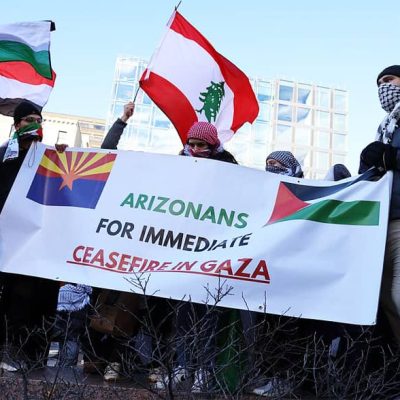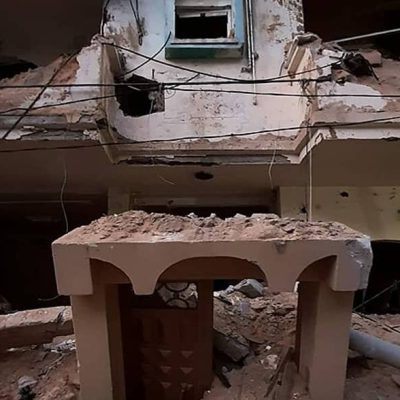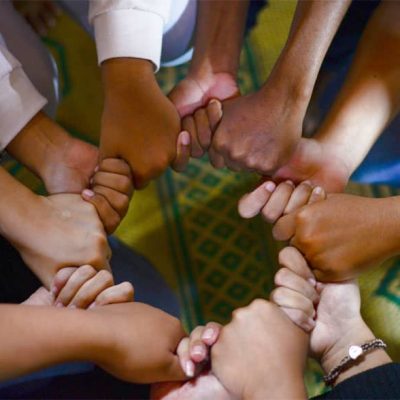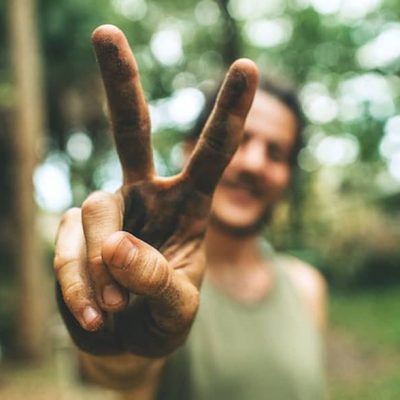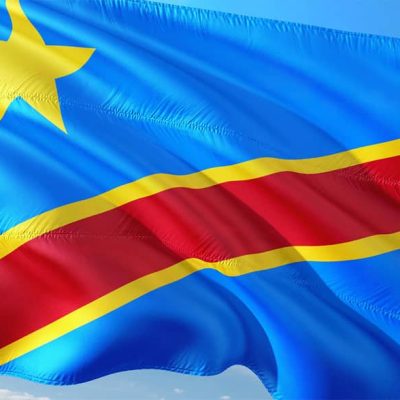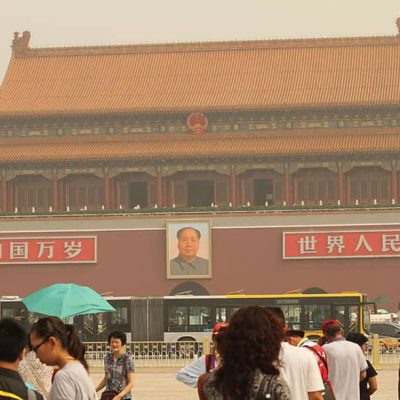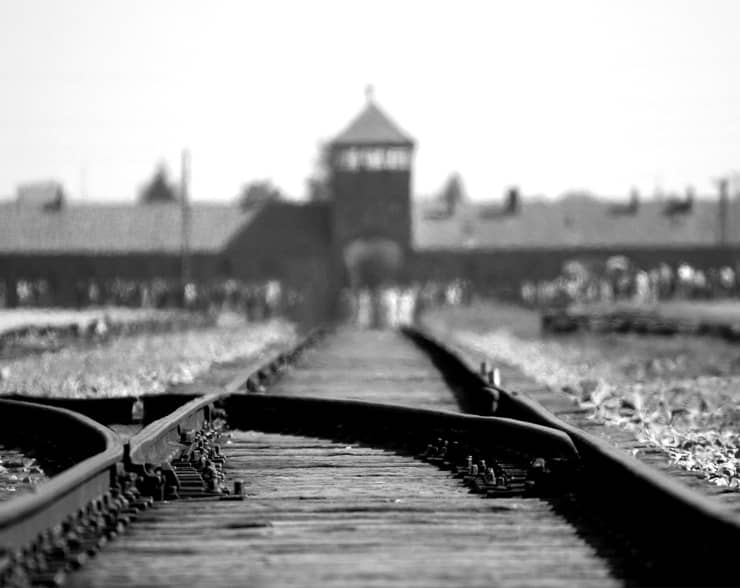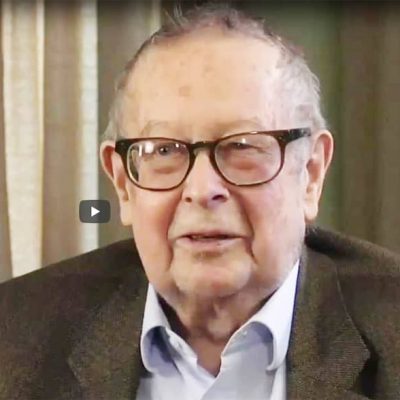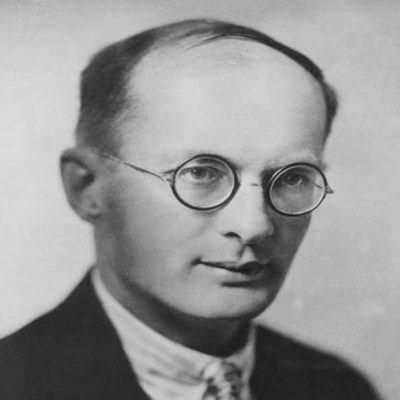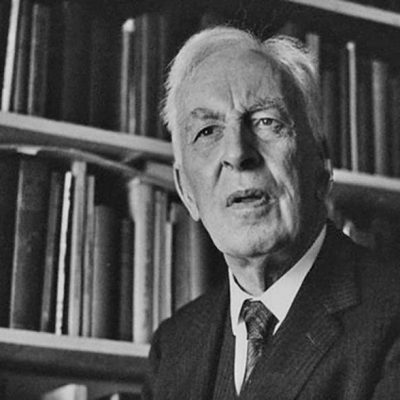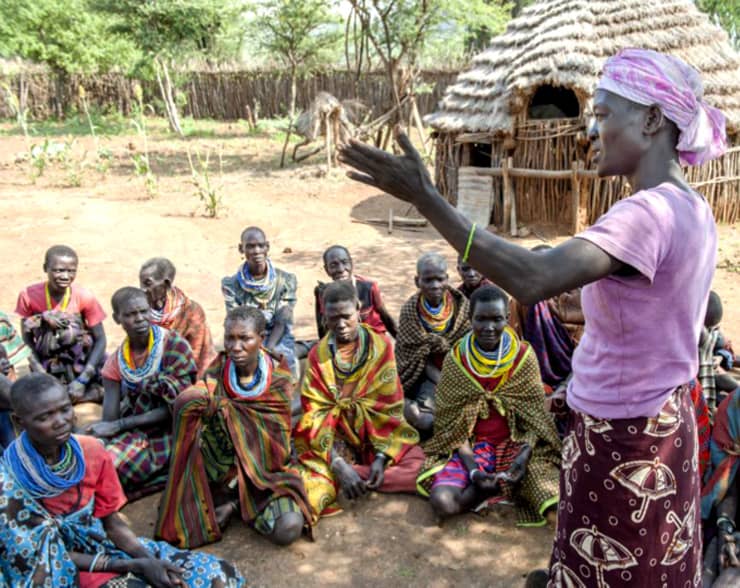 Appeals
Appeals
Reconciliation in Africa: A Vital Need.
Featured Image: USAID has integrated reconciliation and trauma healing into peace building. This has helped communities moveout of the cycle of violence and revenge.Photo credit: Pact/Aernout Zevenbergen. By USAID in Africa, Public domain, via Wikimedia Commons.
Pope Francis’ Appeal to the populations of the Democratic Republic of Congo and of South Sudan for reconciliation and forgiveness stresses a vital need to overcome the divisions of the armed conflicts in the two countries. A million people came to the Kinshasa airport to hear the Pope call for an end to the armed conflicts in the eastern Congo, basically the administrative provinces of North and South Kivu. The area is huge, about the size of the U.S.A. east of the Mississippi River. Originally, he had hoped to go to Goma, the major city of eastern Congo, with many refugees from the surrounding area.
However, the security situation was such that the itinerary was modified. However, his words reached the area.

The Genocide in neighboring Rwanda in 1994.
The Democratic Republic of Congo has a large Christian population. The activity of Christian missionaries was part of the agreement to create the Congo Free State which was the personal property of the King of Belgium before becoming a Belgium colony. Thus, the Pope’s influence can be real with a fairly strongly developed Catholic Church infrastructure to follow up.
However, the divisions within the country are deep and of long duration. The divisions have both ethnic and economic roots. The Congo’s vast mineral and timber riches have drawn in neighboring armies which have joined local insurgencies as well as local commanders of the national army to exploit the mines and to keep miners in near slavery. The eastern area of Congo has been the scene of fighting at least since 1998 – in part as a result of the genocide in neighboring Rwanda in 1994. In mid-1994, more than one million Rwandan Hutu refugees poured into the Kivus, fleeing the advance of the Tutsi-led Rwandan Front, now become the government of Rwanda led by Paul Kagame.
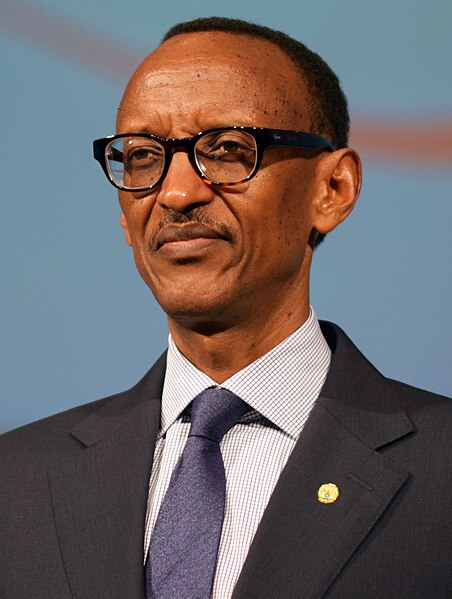
Genocidaire.
Many of these Hutu were still armed, among them the “genocidaire” who a couple of months before had killed some 800,000 Tutsi and moderate Hutu in Rwanda. They continued to kill Tutsis living in the Congo, many of whom had migrated there in the 18th century. As the Rwandan groups created their own militias, so did different Congolese ethnic groups, often drawing on their ethnic brothers who deserted from the Congolese army. Deserters and ethnic militias combined to rob and burn villages and to rape on a large scale. Rape as an instrument of war has been widely practiced in eastern Congo.
Systematic rape is a crime which is covered by the mandate of the International Criminal Court (ICC) in The Hague. Rape is a violation of international humanitarian law. Additional Protocol II of the Geneva Conventions prohibits:
“violence to life, health and physical or mental well-being of persons, in particular murder as well as cruel treatment such as torture…outrages upon personal dignity, in particular humiliating and degrading treatment, rape, enforced prostitution and any form of indecent assault, slavery.”
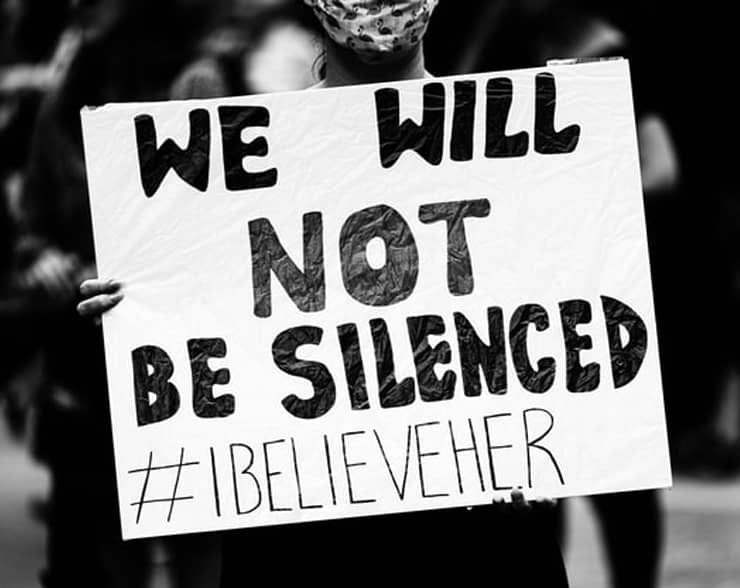
A Step Forward in the U.N.’s Efforts Against Rape as a Weapon of War.
The MONUC.
Into this disorder, in 2002, the United Nations sent peacekeepers, the MONUC, currently some 18,000 persons – the largest U.N. peacekeeping operation. The MONUC mandate has been prolonged with a new Security Council resolution each year that the sponsors hope will be the last. Each year, there is so little improvement in the security situation that the mandate is continued with little debate and with general indifference of world public opinion.
On paper, the U.N. mandate is clear and comprehensive – to build the political, military, institutional, social and economic structures needed to create a secure environment. However, there is no effective Congolese administration. The U.N. troops are not trained to deal with the cultural issues – especially land tenure and land use issues, which are the chief causes of the conflict. U.N. peacekeepers are effective when there is peace to keep. Today, there are an estimated 120 separate armed militias in action.
What is required today in eastern Congo is not so much more soldiers under U.N. command as reconciliation bridge builders, persons who are able to restore relations among ethnic groups of the area. Such bridge builders can help to strengthen local efforts at conflict resolution and the restoration of confidence among peoples in conflict. It must be hoped that the Appeals of Pope Francis will provoke creative action on the part of bridge builders.

The United Nations Peacekeeping Forces, Weak but Necessary.
Rene Wadlow, President, Association of World Citizens.

President, Association of World Citizens (AWC).
Estudied International relations in The University of Chicago.
Estudied Special Program in European Civilization en Princeton University
Here are other publications that may be of interest to you.
Burma’s Crumbling Junta
February first marked the anniversary of the military coup which overthrew the government of Aung San Suu Kyi in 2021. She was in practice the leader of the government but…
Preventing the Expansion of the Gaza Conflict: Are Peace Brigades a Possibility?
Antony Blinken, the U.S. Secretary of State, has been again in the Middle East working to prevent the violence of the Gaza Strip of spreading to much of the area. …
World Citizens Call for an Inmediate End to Hostilities between Israel and Hamas, and for a Genuine Peacebuilding Effort in the Middle East.
Featured image: The impact of the Israeli bombing on a civilian building in Gaza (2021). By Osama Eid, CC BY-SA 3.0 https://creativecommons.org/licenses/by-sa/3.0, via Wikimedia Commons. The AWC, a Nongovernmental Organization…
World Humanitarian Day: A Need for Common Actions.
Featured Image: Photo by Wylly Suhendra on Unsplash. The United Nations General Assembly has designated 19 August as “World Humanitarian Day” to pay tribute to aid workers in humanitarian service…
Peace Planners: Awake!.
Featured Image: Photo by Eddie Kopp, Unsplash. The recent NATO Summit in Vilnius is an indication that the war planning community is busy at work in the spirit of Von…
Track Two Efforts Needed to Reduce China-India Frontier Tensions.
Featured Image: Arunachal Pradesh – India. Photo by Unexplored Northeast, Unsplash. There has been a constant buildup of military forces by the governments of both India and China along their common frontiers. …
Democratic Republic of Congo: Sky Getting Darker.
Photo by jorono, Pixabay. The armed conflict in the eastern area of the Democratic Republic of Congo (RDC) on the frontier with Rwanda seems to be growing worse and is…
World Refugee Day.
June 20 is the United Nations (UN)-designated World Refugee Day; marking the signing in 1951 of the Convention on Refugees. The condition of refugees and migrants has become a “hot”…
4 June: Memories of Tiananmen Square.
4 June makes the security forces in China somewhat uneasy, especially in Hong Kong where, in the past, there were large memorial meetings tp remind people of 4 June 1989…
International Day of the Oceans.
Featured Image: Photo by Marek Okon, Unsplash. Progress on Asian Maritime Delimitations Needed. 8 June has been designated by the United Nations General Assembly as the International Day of the Oceans to…

